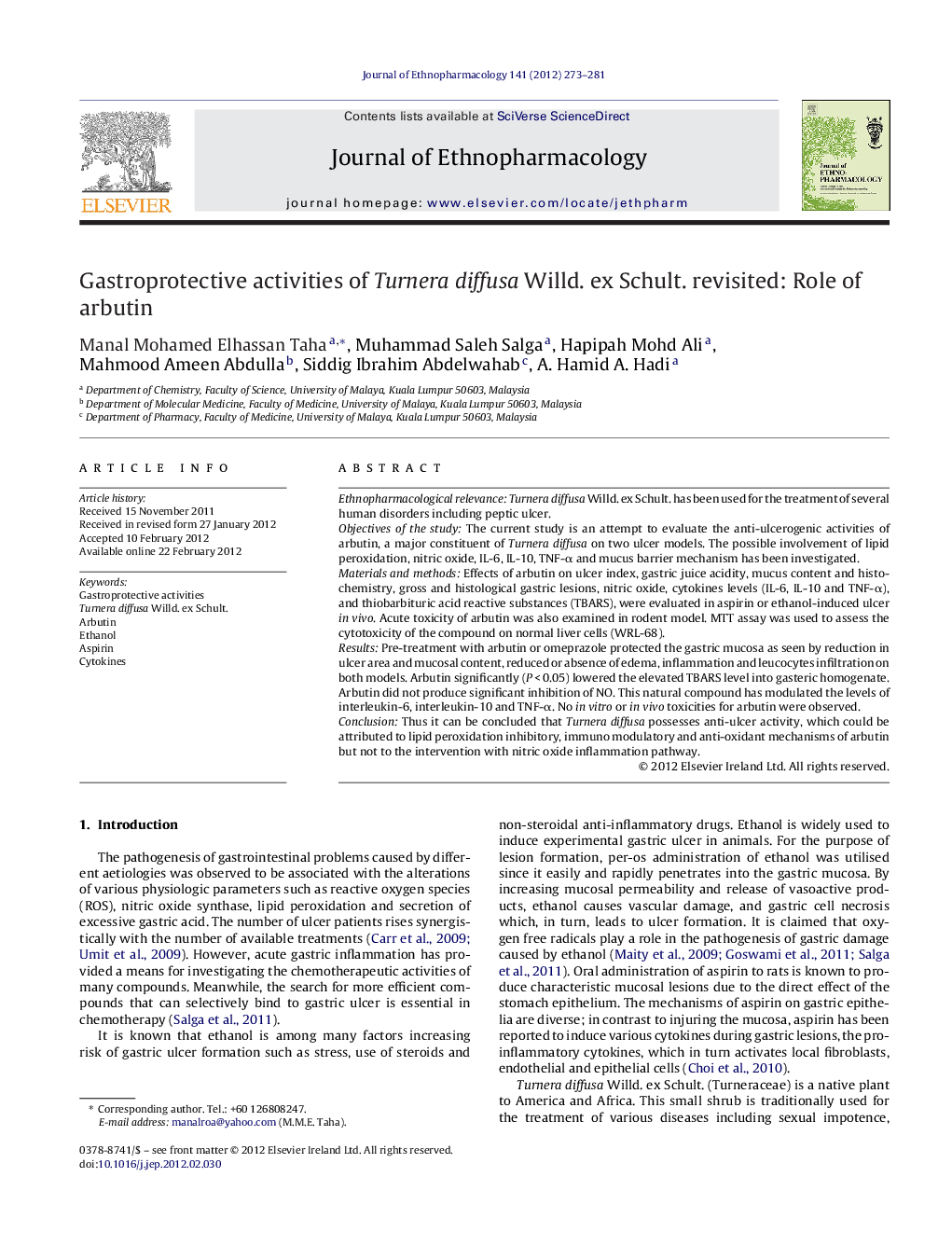| Article ID | Journal | Published Year | Pages | File Type |
|---|---|---|---|---|
| 5838223 | Journal of Ethnopharmacology | 2012 | 9 Pages |
Abstract
Ethnopharmacological relevanceTurnera diffusa Willd. ex Schult. has been used for the treatment of several human disorders including peptic ulcer.Objectives of the studyThe current study is an attempt to evaluate the anti-ulcerogenic activities of arbutin, a major constituent of Turnera diffusa on two ulcer models. The possible involvement of lipid peroxidation, nitric oxide, IL-6, IL-10, TNF-α and mucus barrier mechanism has been investigated.Materials and methodsEffects of arbutin on ulcer index, gastric juice acidity, mucus content and histochemistry, gross and histological gastric lesions, nitric oxide, cytokines levels (IL-6, IL-10 and TNF-α), and thiobarbituric acid reactive substances (TBARS), were evaluated in aspirin or ethanol-induced ulcer in vivo. Acute toxicity of arbutin was also examined in rodent model. MTT assay was used to assess the cytotoxicity of the compound on normal liver cells (WRL-68).ResultsPre-treatment with arbutin or omeprazole protected the gastric mucosa as seen by reduction in ulcer area and mucosal content, reduced or absence of edema, inflammation and leucocytes infiltration on both models. Arbutin significantly (P < 0.05) lowered the elevated TBARS level into gasteric homogenate. Arbutin did not produce significant inhibition of NO. This natural compound has modulated the levels of interleukin-6, interleukin-10 and TNF-α. No in vitro or in vivo toxicities for arbutin were observed.ConclusionThus it can be concluded that Turnera diffusa possesses anti-ulcer activity, which could be attributed to lipid peroxidation inhibitory, immuno modulatory and anti-oxidant mechanisms of arbutin but not to the intervention with nitric oxide inflammation pathway.
Related Topics
Health Sciences
Pharmacology, Toxicology and Pharmaceutical Science
Pharmacology
Authors
Manal Mohamed Elhassan Taha, Muhammad Saleh Salga, Hapipah Mohd Ali, Mahmood Ameen Abdulla, Siddig Ibrahim Abdelwahab, A. Hamid A. Hadi,
